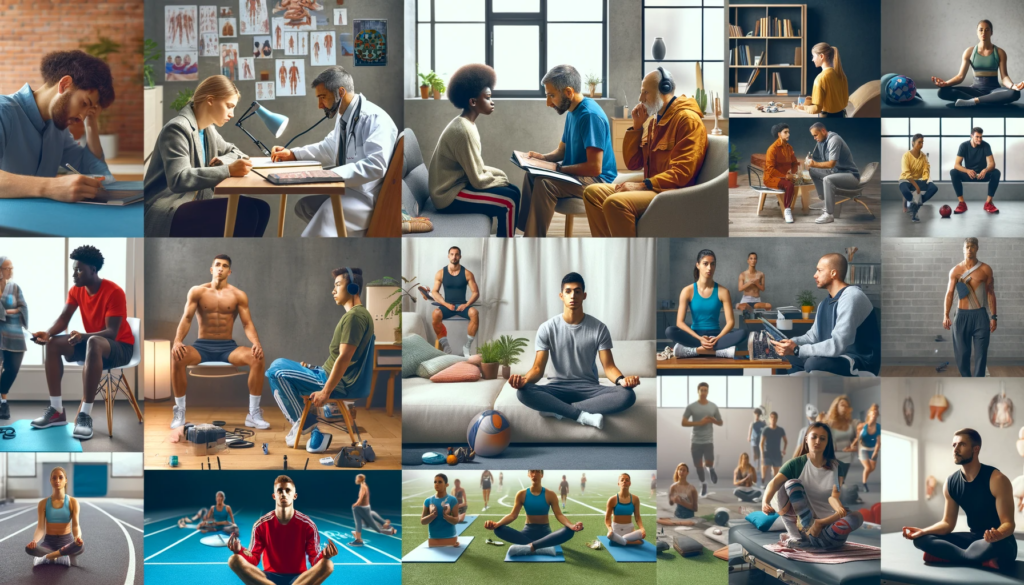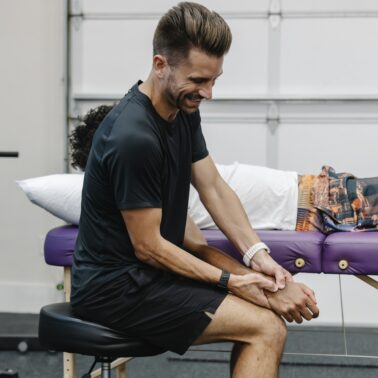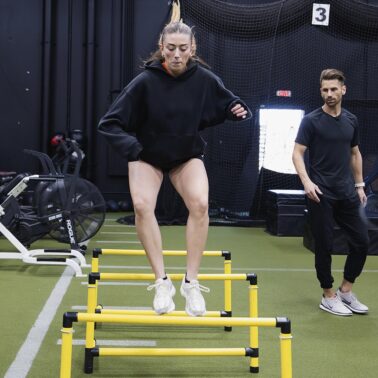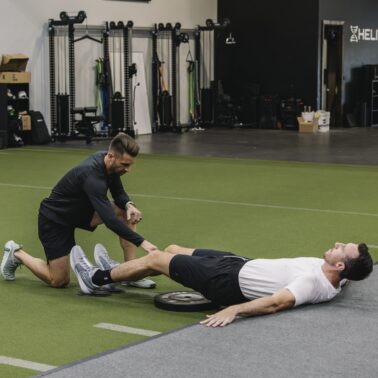“When in doubt, refer out. I understand the importance of mental health and it is critical we guide our athletes, coaches, and physical therapists to reliable resources.”
Adam Loiacono
Here are 10 highly reviewed resources that can be beneficial for athletes, coaches, and physical therapists in overcoming mental barriers when returning to sports post-injury:
- Cleveland Clinic’s Health Essentials: The Cleveland Clinic offers a comprehensive approach to mental recovery from sports injuries. Their Health Essentials blog provides insights into the psychological impacts of injury and recovery, emphasizing the importance of addressing mental health alongside physical rehabilitation. Strategies like cognitive behavioral therapy, relaxation techniques, and body scanning are recommended to help athletes overcome mental hurdles. They also suggest consulting with sports psychologists for tailored mental health support, highlighting how mental and physical health are interconnected. https://health.clevelandclinic.org/how-to-mentally-come-back-from-a-sports-injury
- Association for Applied Sport Psychology (AASP): AASP is a leading organization in the field of sports psychology, offering resources for both professionals and athletes. Their website features a wealth of information, including educational materials, training programs, and a directory of Certified Mental Performance Consultants (CMPCs). AASP also focuses on diversity and equity in sports psychology, providing grants and resources to promote inclusivity in the field. Athletes can find guidance on mental preparation for returning to play following an injury, along with access to regional conferences, student awards, and a blog for athletes, coaches, and parents. https://appliedsportpsych.org/resources/injury-rehabilitation/mentally-preparing-athletes-to-return-to-play-following-injury/
- Mayo Clinic Health System: The Mayo Clinic Health System emphasizes the importance of mental training for sports success. Their resources highlight the significance of mental preparation in conjunction with physical training, especially for athletes returning from injuries. They discuss common mental barriers like low confidence and anxiety, and provide strategies such as positive self-talk, focus plans, and visualization techniques. The approach encourages athletes to maintain confidence and overcome mental roadblocks for successful performance. https://www.mayoclinichealthsystem.org/hometown-health/speaking-of-health/train-your-mind-for-race-day
- Purpose Soul Athletics: This platform focuses on helping athletes regain confidence post-injury. They advocate for setting achievable goals, reframing negative thoughts, and gradually exposing oneself to challenges as part of the recovery process. The site offers personalized coaching programs and emphasizes the importance of a growth mindset in overcoming mental barriers. Their approach is centered around building resilience, visualizing success, and empowering athletes to control their comeback story. https://purposesoulathletics.com/how-athletes-can-regain-confidence-after-a-sports-injury/
- BSN SPORTS Coaches Corner: This resource emphasizes the role of self-care, routine, professional help, and strong relationships in athlete mental health. BSN SPORTS Coaches Corner provides guidance on creating a supportive environment for athletes, discussing the importance of coaches and athletic programs in promoting mental wellness. It advocates for a balanced approach, where mental health is given as much importance as physical performance, and encourages open discussions to overcome the stigma around mental health in athletics. https://blog.bsnsports.com/articles/breaking-the-stigma-discussing-mental-health-in-athletics
- Psychology Today – Sports Performance Therapistst: Psychology Today offers a directory of sports psychologists, therapists, and counselors specializing in sports performance issues. These professionals assist athletes in overcoming obstacles like perfectionism and fear of failure, while cultivating traits like confidence and concentration. They employ various therapeutic techniques, including cognitive behavioral therapy, hypnosis, and biofeedback, tailored to the unique needs of each athlete. This resource is particularly helpful for finding qualified practitioners in specific geographic areas. https://www.psychologytoday.com/us/therapists/sports-performance
- Brain Injury Association of America (BIAA): BIAA provides resources for individuals who have experienced a brain injury, which can be particularly relevant for athletes recovering from concussions or other brain injuries. Their website includes information on diagnosis, treatment, and FAQs about brain injuries. They also offer guides on what to expect after a brain injury and list support groups and rehabilitation services. For professionals and caregivers, BIAA provides training, webinars, and certification opportunities. https://www.biausa.org/find-bia/states/texas/resources-support
- Books and Podcasts in Sports Psychology: A range of books and podcasts offer valuable insights into the mental aspects of sports performance. Authors like Dr. Jim Afremow and Dr. Bob Rotella provide in-depth knowledge through their publications. Podcasts such as “The Sports Psych Show” and “Finding Mastery” feature interviews with experts and athletes, discussing strategies for mental toughness, resilience, and overcoming barriers. These resources are easily accessible and can be integrated into daily routines for continuous learning.
- Local Athletic Programs and Universities: Many local athletic programs and universities offer resources or referrals to specialized sports psychologists and mental health professionals. These institutions often have partnerships with healthcare providers and can offer a range of services, from workshops to individual counseling. They are particularly useful for athletes who are part of academic or community sports programs, providing an accessible and supportive environment for mental health care.
- Online Platforms and Communities for Athletes: The internet hosts a variety of platforms and communities where athletes can share experiences, seek advice, and find support. Websites like Reddit and dedicated forums provide a space for athletes to discuss their struggles and successes with peers who understand their journey. These communities can offer emotional support, practical tips, and a sense of belonging, which is crucial for mental well-being during the recovery process.

Each of these resources offers unique approaches and tools to help athletes overcome mental barriers and support their journey back to their sport following an injury.



